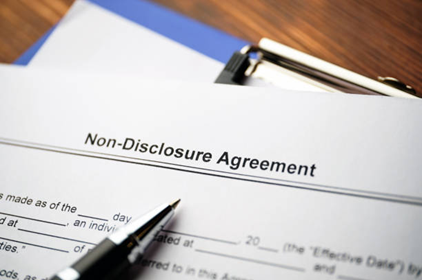- Hyderally & Associates P.C | Employment Lawyers NJ, NY
- (973) 509-8500
- tyh@employmentlit.com
New Jersey Appellate Division Orders Department of Labor to Rewrite Unemployment Definition of Simple Misconduct
Good Faith Belief of FMLA Violation Justifies Termination
April 27, 2017The Scope of Service: Can Courts Hail Parties Into Court by Using Facebook?
June 2, 2017New Jersey Appellate Division Orders Department of Labor to Rewrite Unemployment Definition of Simple Misconduct
New Jersey Appellate Division Orders Department of Labor to Rewrite Unemployment Definition of Simple Misconduct
May 5, 2017
Francine Foner, Esq.
Ty Hyderally, Esq.
In a published decision issued on May 1, 2017, the Appellate Division held that Department of Labor and Workforce Development (“DOL”) needed to “go back to the proverbial drawing board” and come up with “a clearer and more cogent” definition of what constitutes an employee’s “simple misconduct” for purposes of denying eight weeks of unemployment benefits. In re N.J.A.C. 12:17-2.1, 2017 N.J. Super. LEXIS 58. The Appellate Division’s holding resulted from an appeal which challenged, among other things, a DOL regulation passed in 2015 which, for the first time, codified the definition of the “simple misconduct” as used in unemployment matters.
In New Jersey, the current statutory and regulatory scheme governing eligibility for unemployment benefits is subject to three levels of employee misconduct: simple misconduct, severe misconduct and gross misconduct. Each category of misconduct carries with it a progressively harsher sanction.[1] Based upon the fact that each category constitutes a progressively harsher penalty, it only makes sense that the type of conduct contained within each category is also progressively worse. As the Appellate Division opined: “[i]t would make no sense to allow for conduct with a lower level of culpability (such as mere inadvertence or negligence) to qualify as severe misconduct and carry with it a harsher sanction than simple misconduct.” .. “Such a result would be absurd and clearly contrary to the legislative intent.” Id. at *12-13, citing Silver v. Board of Review, 430 N.J. Super. 44, 53 (App. Div. 2013). However, as the Appellate Division observed, in 2015 the DOL adopted regulations which appear to do just that, defining the term “simple misconduct” in a manner which “confusingly blends concepts of negligence with intentional wrongdoing that cannot be sensibly understood or harmonized.” Id. at *22-23. The Appellate Division further opined that “the present regulatory definitions seem to treat as “simple misconduct” certain kinds of employee behavior that fall within the statutory definition of higher-level “severe misconduct,” and vice-versa.” The Appellate Division therefore found that the definition of simple misconduct should be re-written entirely to adequately distinguish mere “simple misconduct” from the more egregious “severe misconduct.”
Although falling short of dictating a new definition of “simple misconduct,” the Appellate Division did suggest that the new definition could incorporate the concept of “gross negligence,” or “provide that either ‘gross negligence’ or ‘intentional misconduct’ can suffice.” Id. at *25-26. Whatever new definition of “simple misconduct” is ultimately adopted by the DOL, it should result in more clarity for unemployed individuals facing challenges to their eligibility for unemployment benefits.
[1] Simple misconduct by an employee “results in disqualification for the week that the employee was discharged and seven additional weeks.” Silver, Supra, 430 N.J. Super. at 49 n.4 (citing N.J.S.A. 43:21-5(b)). To be eligible for unemployment benefits after being discharged for “severe misconduct,” an employee “must first become reemployed for a period of at least four weeks and earn at least six times the employee’s weekly unemployment benefit rate.” Id. (citing N.J.S.A. 43:21-5(b)). “Gross misconduct,” results in “no benefits from the account of the employer against whom the gross misconduct occurred and requires at least eight weeks of new employment and wages totaling at least ten times the weekly benefit rate before the claimant can collect unemployment compensation.” Id. (citing N.J.S.A. 43:21-5(b)).
The above blog post was written over one year ago. The information in this blog post may not be current due to changes in the law or recent case decisions. We encourage you to contact our firm, at 973-509-8500, for information on this particular post and to make sure the content is still current.
This blog is for informational purposes only. It does not constitute legal advice, and may not reasonably be relied upon as such. If you face a legal issue, you should consult a qualified attorney for independent legal advice with regard to your particular set of facts. This blog may constitute attorney advertising. This blog is not intended to communicate with anyone in a state or other jurisdiction where such a blog may fail to comply with all laws and ethical rules of that state of jurisdiction.

